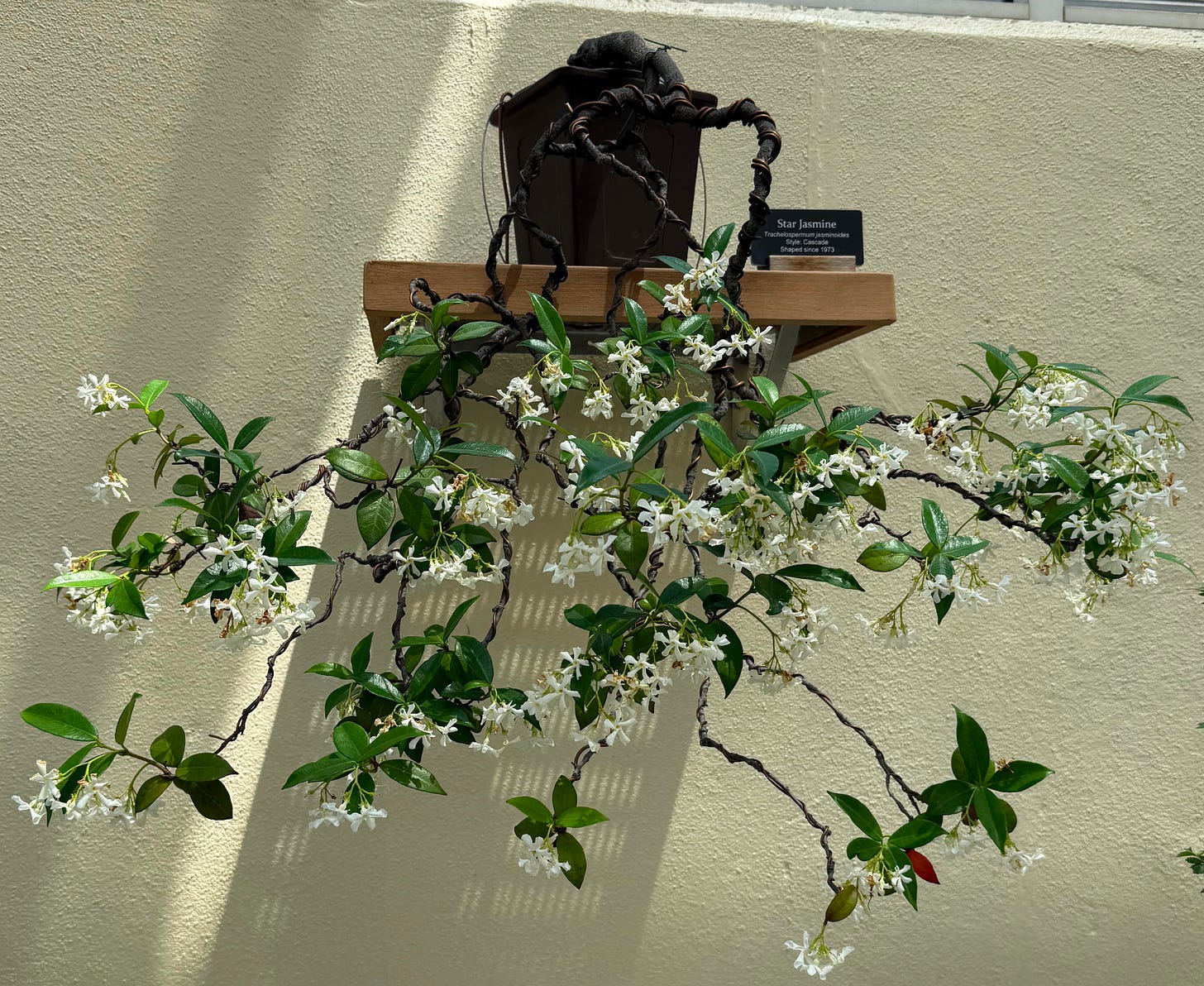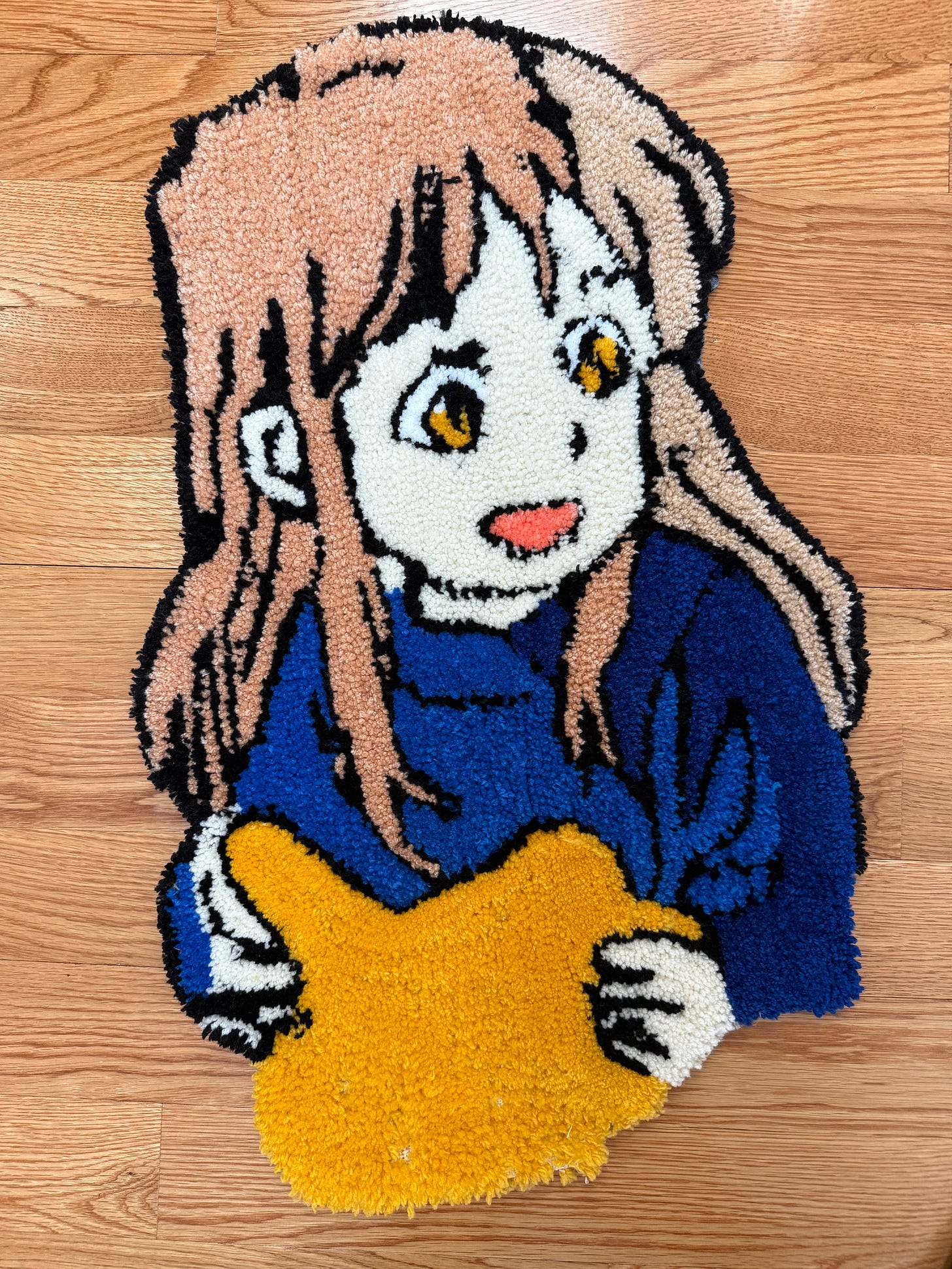Published on July 31, 2025 6:57 PM GMT
Leaving
Quant finance careers occasionally gift a transitory meadow called garden leave: paid to stay off the playing field. Mine lasts one year, and is still going.
But since baby #2 leaves the womb soon, I feel my garden leave leaving me behind, on a transition of its own, into the more familiar parental leave.
I’m grateful to have had the experience, wistful at the prospect of leaving it behind, and ready to share some lessons.
Lessons
1. Work becomes a background thread
For thirteen years my calendar orbited monthly and annual goals. Garden leave flips the hierarchy: life is the main quest; work is a side quest. Paid work has been demoted for now: it’s something interesting to explore, respectable to cite, and easy to pause.
My best working hours now fit between my daughter’s bedtime and my own. Nights used to be my only socializing time; now they’re free for writing.
The rest of the day defaults to family, health, or serendipity. My social graph inverted with the schedule. Off the corporate clock, Tuesday 10 a.m. becomes prime social time. I now seek out other “day goblins”[1] for park walks, museum visits, and swim lessons. Evenings are unscheduled for family or deep work. Daylight friendships are a cheat code for work‑life inversion.
In my experience, stopping work does not much change a person’s appetite for purpose. If you ponder “why am I here? what am I doing?” during 80‑hour weeks, you’ll do the same during zero‑hour weeks. But if you are mercifully free of such questions, they won’t necessarily arise just because you have one less flower to water.
2. Leave some advantages on the vine
If my edge is clever deal‑making, my hypothetical best life includes a stream of clever deals. Great, I should seek them out.
But edge often springs from enduring something dismal:
- Decision‑making under pressure → a life spent under pressure.Pain tolerance → a life rich in pain.Paranoid scenario planning → a life packed with anxiety.Indifferent stamina for grunt work → a life filled with drudgery.Infinite curiosity → a life neck‑deep in the obscure.
Be careful about leveraging advantages that arise from gathering and tolerating aversive inputs. Advantage that feeds on aversion shackles me to the aversion. I may even start to confuse the aversive input with the value creation mechanism, and cargo-cult myself to misery.
There is a trope that what scares me is where the value is, that pain means gain, that anger reveals truth. And conversely that comfort causes stagnation, that relaxation is sloth, that joy signifies mania or delusion.
This narrative is a sales pitch designed to lower the price of bearing unpleasantness. Keep that price high.
For myself, I’m rewiring my value generation towards what naturally drives me: the fun of navigating complexity, the joy of discovery, and the beauty of depth.
3. Gardens are the promise of control
This is a star‑jasmine tree from the Brooklyn Botanic Garden’s gorgeous exhibit, 100 Years of Bonsai.

At first glance it’s a cascade of white blossoms. But zoom in and every branch is bound tight with dark wire, deliberately twisted to appear natural.
Garden leave rhymes[2]: a salary‑watered grove whose elegance depends on boundaries and constraints.
Gardens are the verdant vision of what control offers to the controlled: perfection through exceptional, hyper-individualized care. Star jasmine rarely lasts 20 years; this one is over 50.
Yet I find myself wandering Prospect Park far more often than the manicured beds. The park is managed, not mastered. Squirrels, toddlers, BBQers, musicians, and cyclists improvise inside loose boundaries. Freedom produces a messier beauty, no wires required.
A bonsai test on commitments: will this bloom on its own, or will it need constant wiring and pruning? If the latter, how much symmetry is the leash worth?
4. Previewing unhealthy retirement
Garden leave is like a trailer, demo, or EP for retirement. What I enjoy now, I’ll probably also want in retirement; what’s missing now, I must be able to acquire; what I loathe now, I need to excise before retirement.
Recovery from a January surgery cost me precious months. The body still takes months to heal, even spending 10+ hours per week on recovery instead of 1 hour. That’s the nightmare version of retirement: enough cash, oceans of time, zero mobility. I must arrive at retirement healthy, not use retirement to get healthy.
5. Free time is both cheap and priceless
There are two ways to think about time during garden leave:
- Time is cheap. So many unscheduled hours. Anything I can do today, I can do tomorrow. Sleep in. Do a three-hour workout and get the form just right. Walk home through the park.Time is priceless. One unique opportunity to use a year to explore. Decades from now, I will give anything to return to this time. I must make the most of it. Put every resource to work. Sharpen the shears. Write the blog. Build the foundation for the years to come.
It’s hard to take the average of these perspectives, but easy to switch between them. Each moment can feel priceless or cheap. But they are both wrong: pretending that a unique, unrepeatable year is just a series of normal days off invites squander; pretending every hour is sacred invites paralysis.
6. Expectations are not experiences
Money, contracts, even the near‑certainty of a child are promises, expectations. Finance marks the value of changes in expectations (and in fact often punishes realization), but life only cashes in when the expectation is realized. In finance, the present is noise; in life, it is all we have.
Knowing baby #2 will arrive doesn’t diminish our first skin-to-skin. The excitement at taking out a mortgage is not equal to the beauty of living in the house. And for my quant finance friends: knowing that you will have your own year of garden leave is nothing compared to the experience of it.
7. Exploration friction is overcome by invitation
I love trying new things, but I mostly love the part where I’m actually doing the new thing. But the whole act of “trying something new” is mostly plumbing: finding the class, syncing calendars, sourcing gear, commuting, reflecting, repeating. I’m just now appreciating how much surface area that friction occupies. Transaction costs dwarf the actual experiment. It’s much easier to stick with what is known.
The best solvent is an enthusiastic guide who pulls you in.

I made a rug of a Ghiblified photo of my daughter
In April, I lost my wallet hopping onto a Citi Bike. A kindly maker studio owner texted me and, in the hand‑off chat, invited me to his tufting workshop. Zero search, zero planning, no gear worries: just show up. Two evenings later I was punching yarn into canvas, weaving a Ghibli‑style portrait of my daughter.
This is just to say that I am an enthusiastic participant, and I love receiving invitations. Maybe I should send some more.
8. The terror of creation
If I spent the year cooking, traveling, and reading, no one would ask why. Publishing this blog invites “What’s the point?” and “I have some feedback on your writing style”. Because I’m the sole proprietor, I ought to (and try to) answer, eloquently and graciously.
If I were an employee, someone else would own the end‑goal. Solo, I am accountable for the relevance of everything I do, and my choices reveal my skills and taste.Creation outside a role is exhilarating precisely because failure has no place to hide.
Coda
One must tend one’s own garden.
Thoughts, questions, and invitations welcome.
- ^
Thanks to Adam Creasman for the term
- ^
A Dr Seuss poem about bonsai, by o3:
oh the tree on the tray in the lamp-lighted bay
was once on a crag where the cloud-rabbits play.
with a snip-snap-snizzle and a twist-twangle tie,
you’ve squeezed a whole forest to one watchful eye.
it wiggles its twigs in a pint-sized parade,
dreaming tall-tallish dreams of a sun-splashed glade;
yet it hums chlorophyll like a green metronome,
making do, making do, in its thimble-top home.
so mind every clip and each teeny-twee bend—
a careless kabonk and the song meets its end.
grow SMALL, it may whisper, but grow you still must;
for the sap beats the pot, and the bark outlives rust.
Discuss

